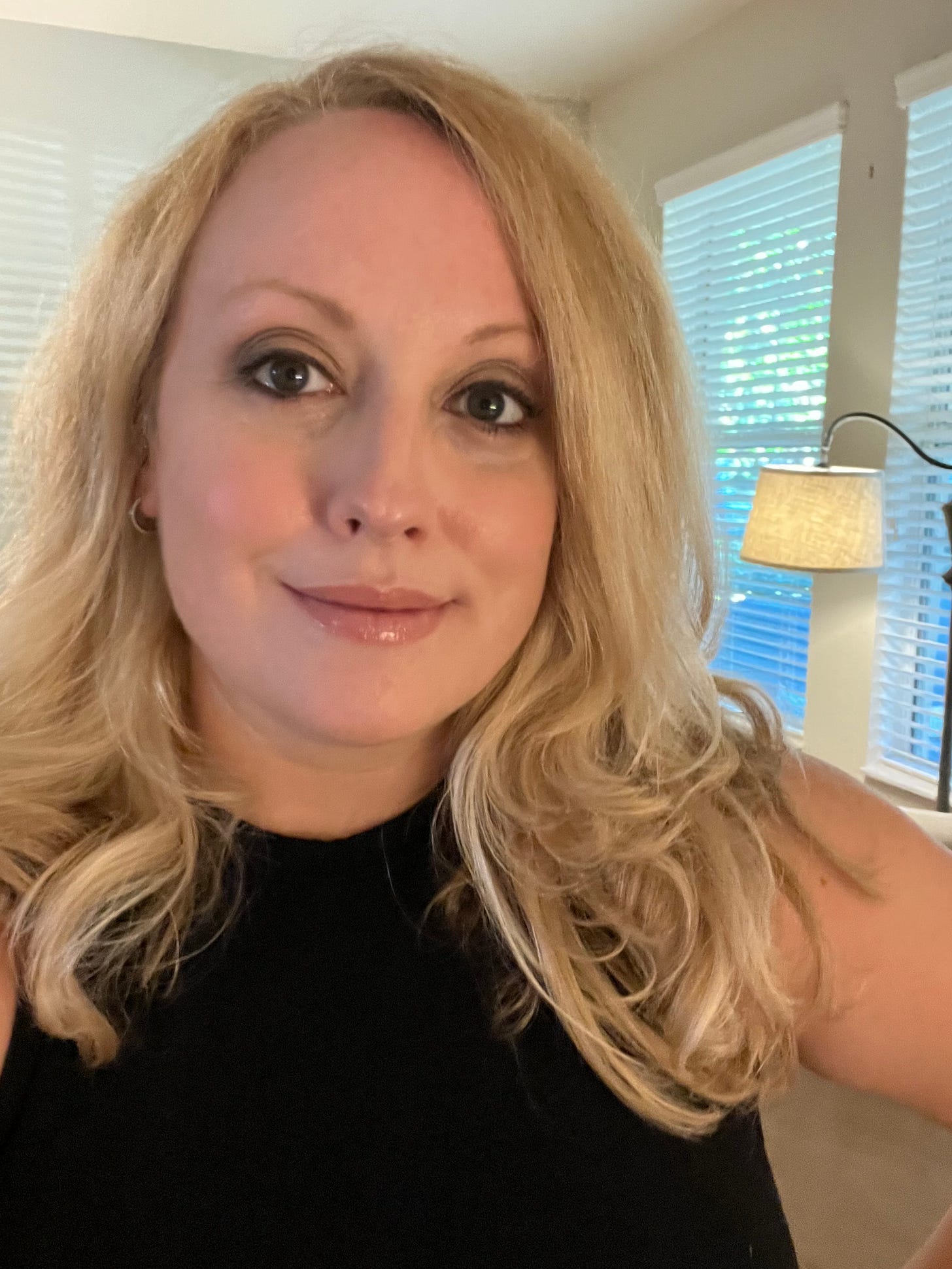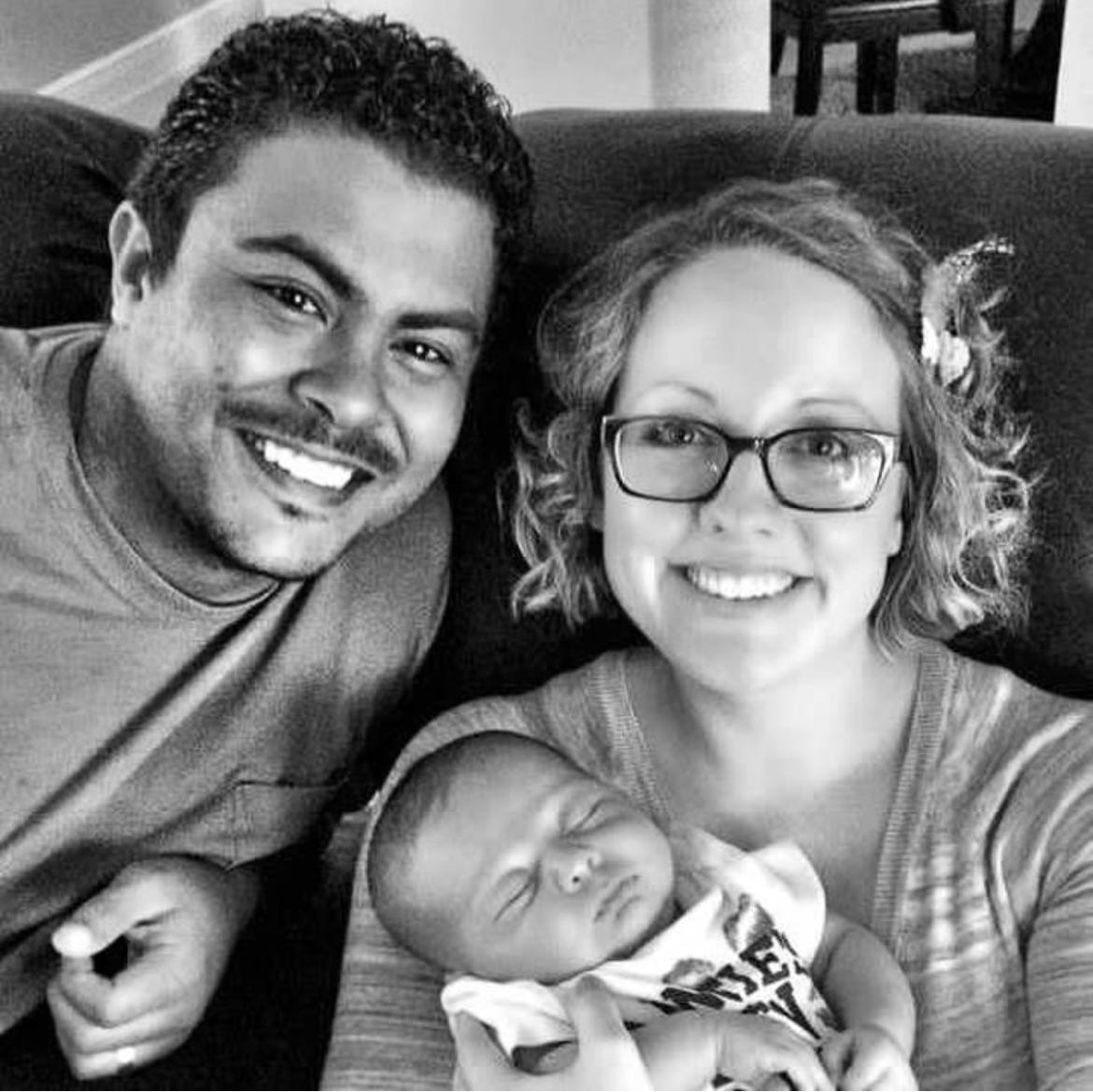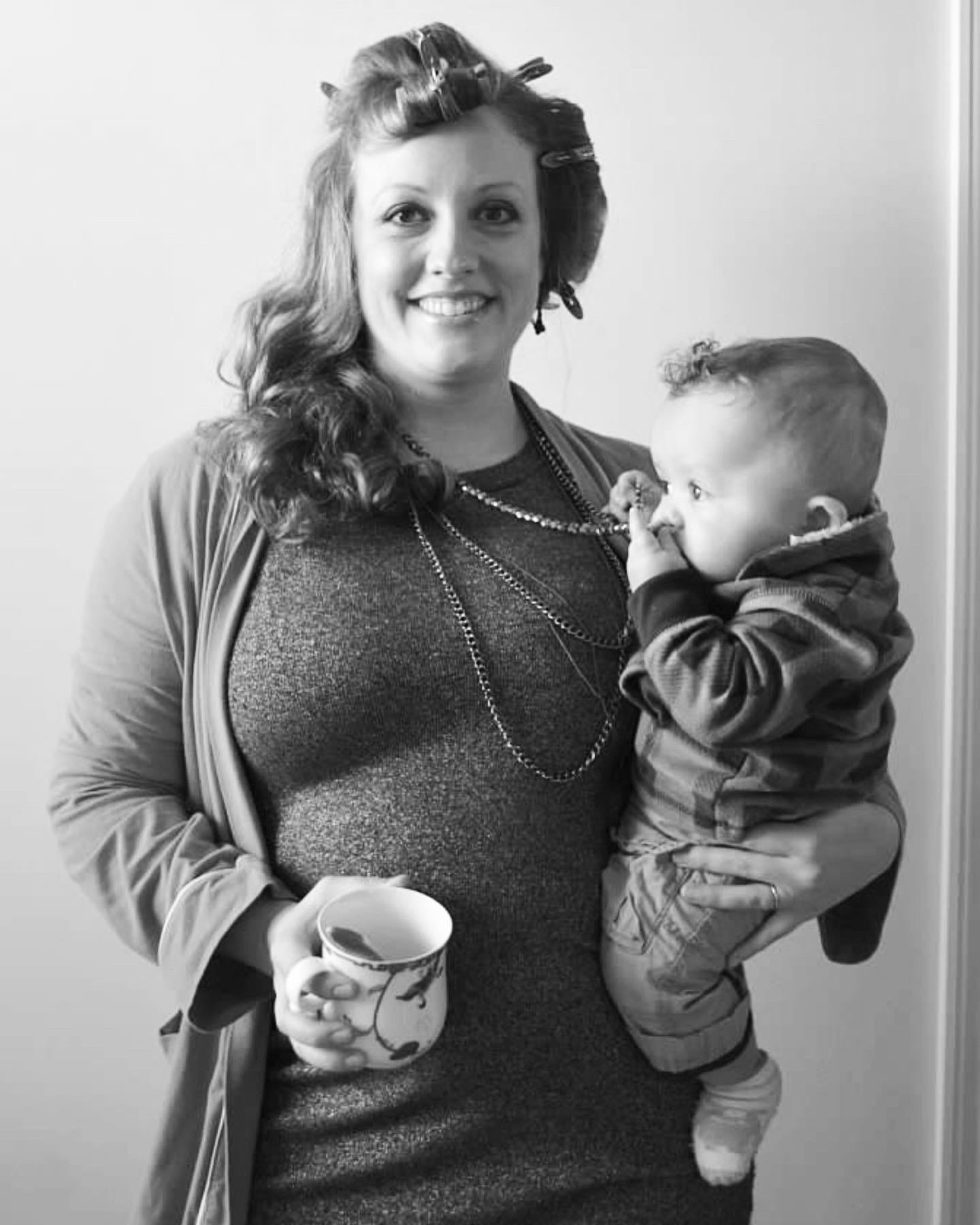My entire life, I’ve always felt I was different from everyone else. Not different in how we are all unique and bring our own brand of human-ing to the earthly-existence table. More like I always felt I was so different maybe I wasn’t even human.
At least not human like everyone else.
I wish I could say I’ve felt different in a “good way”, but, unfortunately, I have spent most of my life feeling that there was some kind of fundamental malfunction in me that would not allow me operate in daily life with the same apparent ease or common understanding so many around me seemed to have.
As if everyone got a “How to Human” users manual and mine got lost in the mail.
As a child I was diagnosed with IBS because of my anxious stomach. In college I was diagnosed with anxiety and depression. And at the age of 39 I was diagnosed with ADHD. With a smattering of other various common comorbid diagnoses thrown in here and there.
All of these diagnoses felt like a puzzle coming together yet not fully complete.
Treatment for any or all of these things would bring relief, growth, and understanding to a degree, but still. None of them fully explained the depth and breadth of my life long struggles.
When my children started to struggle even from very young ages, I knew I needed to know more and get them the support and help they needed to thrive.
It was in researching and advocating for my children that I finally decided I should do the same for myself.
I researched psychologists who specialized in adult women and could provide me with a full, comprehensive psychological evaluation. It took months of waiting, but I was finally evaluated in October 2022.
T and I both filled out a litany of evaluations and questionnaires ahead of my 3.5 hour in-person evaluation. When I arrived for my session she already had charts and graphs ready to review with me based on both our answers. And from there we spent hours and hours going over my life with a fine tooth comb.
I was given an IQ test, interactive computer tests designed to detect ADHD, and, the most comprehensive of all - the interview.
By the end of my visit I felt there had been no rock unturned. Not one.
“So, tell me about your life. Let’s start with the day you were born, were you a natural birth?…”
By the end of it all, she reviewed all the information she had collected, including observations she made of my body language, mannerisms, eye movement, hand gestures, etc, and felt confident she had a diagnosis for me.
“Katie, congratulations! You’re autistic!”
Autistic.
I am autistic.
Now, perhaps this is a surprise for you to read.
In one way, it was a surprise to hear.
But, truth be told, by the time I had arrived for my evaluation, I was fairly sure I was autistic.
Months before I had had an epiphany while researching autism in regards to my children. I had spent years reading about autism in young boys and men, but I hadn’t ventured into learning much about autism in girls and women.
One day, I stumbled upon an article about how autism shows up differently in girls and women and BOOM!
I had a moment of clarity so abrupt that it felt like that scene in the movie Elf when Buddy the Elf realizes he is a human and not an elf.
It rocked. my. world.
So when she told me I was autistic, instead of utter shock, I felt like the entire weight of the world had just been lifted off me.
I wasn’t bad at being neurotypical!
I was just really good at being neurodivergent!
Not great at not being autistic!
But great at being autistic!
The doc also confirmed my previous diagnosis of ADHD, anxiety, and depression. What a list I have! But let me tell you: when all the puzzle pieces came together, I felt seen and understood for the first time in my life.
The doc and I talked about my new diagnosis for quite some time. She explained in detail how she came to her conclusion (her observations of my mannerisms and body movements was truly interesting and surprising to me) and we talked about next steps.
“I just want to remind you that there may be a lot of people who aren’t going to understand or perhaps even believe your diagnosis. And that’s okay. What matters is that you have the information you need to care for and advocate for yourself and your needs.”
Apparently I have flown under the radar, like so many other girls and women who are autistic, because I have above average intelligence and I am extremely good at masking and camouflaging. What would have been referred to as Asperger’s in previous years, I have been distinguished as being Level 1 Autistic. While functioning labels are not used in most autism communities and by autistic people anymore, levels are used in the medical/psychological field to determine the amount of accommodations and supports any given autistic person may need.
Level 1 typically means low level of need for accommodations to perform daily life functions. But it’s important to point out that “low level need for accommodations” is a subjective phrase - low level can look different for every person- and it’s also important to point out that low level doesn’t mean none.
Not too long ago, in addition to being labeled as having “Aspergers”, it would have been common to label me as “high functioning”. But calling someone “high functioning” is no longer common in the autism community because the truth is that even people such as myself who can mask enough to fit into what society deems as “normal”, works very hard to the point of burnout and illness to function in this way.
I mentioned the results of my IQ test above not to brag, but because I think it is important for several reasons. One reason is that I spent most of my younger years believing I wasn’t smart. I didn’t do poorly in school, but I also didn’t do well. I was a B-C student throughout my school career, but that was after lots and lots of trying on my part and then giving up when something just wouldn’t “click” for me.
It wasn’t that I couldn’t learn. It’s just that I struggled to learn like neurotypical people.
Learning that I am, in fact, smart, healed something in me that had been effecting me all my life. I’m smart - I just arrive at the answer or problem differently than others.
Another reason I mention my IQ is because my above average IQ might not have shown up in my grades, but it certainly showed up in my ability to learn how to mask my struggles and differences from the world. I was able to go to college, get a degree, work challenging jobs throughout my career, and be a kick-ass stay-at-home mom and home manager all by finding my own way to do what I needed to do to excel (or at least do just fine)- I came up with my own “accommodations”.
My life has been a series of neurodivergent life hacks that I’ve used to do what I needed to do or to fly under the radar. This makes me both proud of myself for persevering and figuring it out without knowing what was truly going on with me, and also sad at how exhausted and burnt out I have been all my life because of not knowing my limits and not knowing how to advocate for my own needs and accommodations.
Anyone who has worked with me undoubtedly experienced an outgoing, bubbly, funny team player who did her job well while providing copious amounts of oversharing and funny stories.
And that’s because I worked very very hard to be that version of myself around others.
I’m not pretending to be another person, per se. I am being me. But just a version of myself that requires a lot of energy and focus to bring to the forefront.
What most people didn’t see was that most days after work I had to come home and take a nap and be by myself the rest of the night and watch my comforting shows that I watched over and over again and not have too much stimulation. Sometimes I could go out after work, but that almost always involved drinking. Something I did to mask my anxiety about social situations. They also didn’t see that most of my weekends were spent alone at home decompressing and doing practically nothing.
Dating was FUNNNNNNN! But that’s post for another day.
Before I move on from the topic of IQ and cognitive ability, I want to be clear that Autism is truly a spectrum. (And no, not every human is on the autism spectrum. An autism diagnosis is required to be on the autism spectrum. Just because something is a spectrum doesn’t mean it encompasses everyone and everything.)
Every autistic person is different. There is a wide range of cognitive and intellectual abilities as well as a wide range of support needs and accommodations. Every autistic person is valuable and worthy of dignity and respect and the need for support and accommodations does not mean an autistic person is incapable or deserving of being infantilized or dismissed. Autism is a disability. But there is no shame in being disabled. I am still unlearning a lot of untrue things about autism, ADHD, and being disabled and I still have a long ways to go.
Being an autistic person who is capable of masking to the degree I have doesn’t make me better than or more special than any other autistic person. Some autistic people see their autism as a gift and others do not. If you’ve met one autistic person, you’ve met one autistic person. No one person speaks for the entirety of us and that includes me.
Only people who have lived with me for an extended amount of time have gotten a peak into the truth of how hard it is for me to stay organized, manage housework, and engage in social situations.
But even then, I masked.
Masking in my own home has been one of the hardest parts of being an undiagnosed neurodivergent person.
My whole life I have known in my gut that I am different.
But I haven’t known HOW I am different or how to truly be like everyone else.
I haven’t known what to change about myself to fit in, but knew I had to change SOMETHING.
So I just changed EVERYTHING. Just to be sure.
From a very young age, I learned to mimic those around me and essentially mirror others. I am still me - my unique neurodivergent self - but I am bringing forth a version of myself that I feel might be the most pleasing or appealing to someone so I don’t feel so different.
It is because of my ability to mask for so much of my life that motherhood has been so difficult for me.
Once Izzy arrived, I couldn’t mask as much anymore.
I was too exhausted and too focused on learning how to care for my children to mask my overwhelm, anxiety, uncertainty, etc. I felt like a live wire walking around at all times. I knew I was different as a human, but especially as a mother.
A common misconception about autistic people is that we can’t feel or connect deeply. Most of us can and are, in fact, very empathetic, loving, and caring even to the point of discomfort. The love and connection I feel for my children feels almost otherworldly.
I feel completely uncertain on the right things to do as a mother. I struggle to read their cues on what they need. But my goodness, I will fight a bear for them daily if I needed to.
And in a way, I have.
I have had the privilege since Izzy was born to mostly be a stay-at-home mom and that has given me the ability to be my children’s strongest advocate. I may not have known until recently the extent of my neurodivergence. I didn’t have names or labels yet. But I knew when my kids were struggling like I had struggled as a child and I have been determined to provide for them, what I didn’t have.
And to be clear, I don’t blame my parents or childhood doctors, teachers, or family, etc for not knowing. My parents did everything they could within their power and knowledge at the time to help me. They knew I struggled. They knew I required more support and was different from other kids my age. And they did all they could to support me.
My mom was the original mama bear and I learned from her what it looks like to love your children fiercely and unconditionally. My parents took me to different doctors in Morgantown and Charleston trying to figure out what was happening with me, but no one could fully understand. TLDR; my parents did their best and I am thankful for all they did to support and love me unconditionally even though I was not, and continue not to be, an “easy” child. (That said, the more I learn about children the more I am pretty sure there are rarely “easy” children immaright?!)
Motherhood and marriage have given me the gift of unmasking slowly but surely over this last decade. And this year, I worked with my spectacular therapist and amazing life coach - even before my autism diagnosis- on unmasking in healthy ways.
I knew, that despite all the walls that have come tumbling down over the years since becoming a wife and mother, there were still more to come down. And these walls were deeper, foundational walls. Core beliefs, if you will, that were formed at a young age due to being undiagnosed autistic and ADHD and feeling broken.
Those untrue core beliefs about myself had to be changed and learning I am autistic/ADHD was the key to finally being able to do it.
It’s one thing to know I mask in unhealthy ways and want to stop.
It is another thing to know why I do it and how to stop doing it.
Knowing I am autistic has changed my life for the better.
I feel brave today for telling you all this.
Not because I am ashamed, quite the opposite actually.
I am elated to finally have all the pieces to my puzzle. I feel brave because there is and always has been a stigma associated with autism and despite the hard work of many amazing organizations and autism advocates there continues to be a lot of misinformation and misunderstanding when it comes to autism.
I am telling you my diagnosis because part of my reason for starting to write again is because I want to share what my life as an autistic wife, mother, and human is like. I can’t possibly speak for all autistic people, but I can speak for myself.
I can be myself.
Well, I can LEARN to be myself.
I am inviting you into this journey with me. I am learning more about what being autistic with ADHD means to me every day.
I hope you will come along with an open, curious mind and I will do the same.






Katie…what a special person you have become! Your writing skills have impressed me as has your ability to express yourself…so proud!
Congratulations! I'm honored to be allowed to look in your window. XOXO